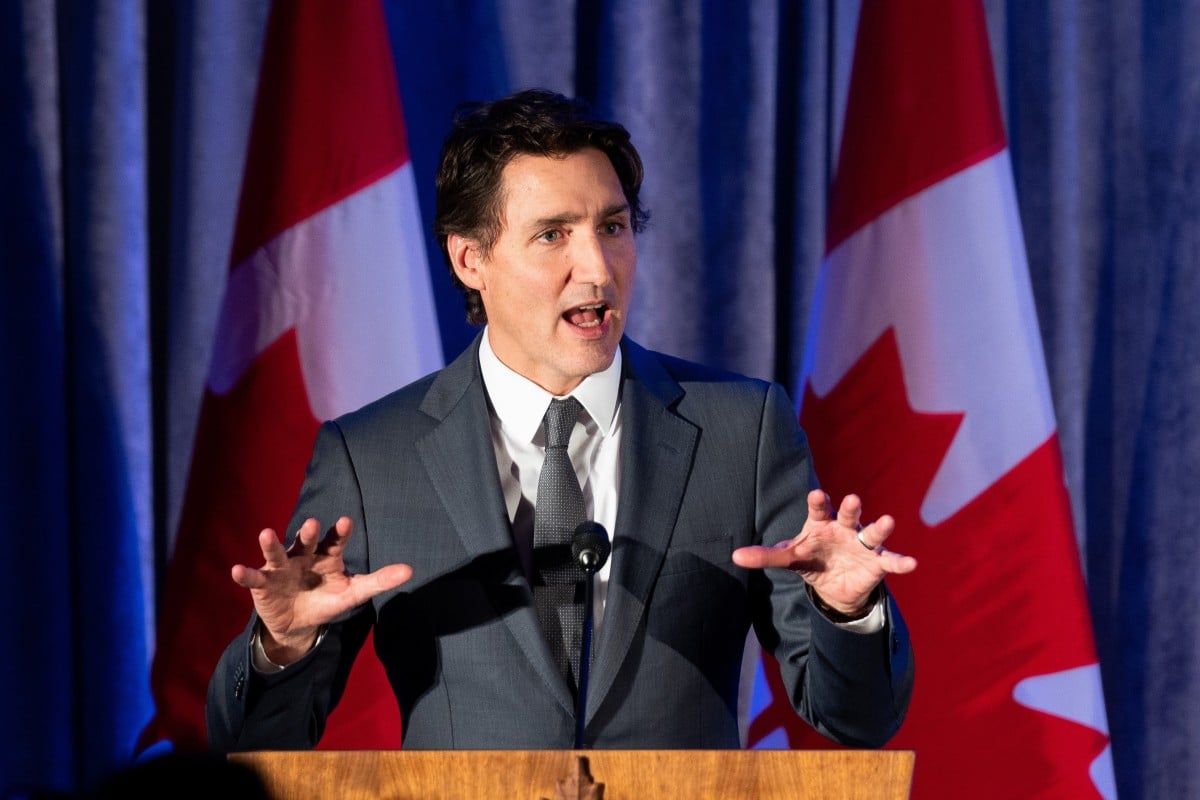News
Canada’s Trudeau Doubles Down on Sikh’s Assassination By India

Canadian Prime Minister Justin Trudeau has stated once again that there are “credible allegations” to think that Indian operatives were involved in the assassination of a Sikh separatist on Canadian soil.
He made the claim on Monday, which India fiercely denied, calling it “absurd.”
Hardeep Singh Nijjar, who India declared a terrorist in 2020, was killed in June outside a temple. Following the allegation, tensions between the two countries have risen.
The Indian government has frequently reacted harshly to demands for Khalistan, or a separate Sikh nation, made by Sikh separatists in Western countries.
Though India labelled Nijjar a terrorist, his admirers argue that he was a peaceful activist who supported the desire for a separate country for Sikhs.
Mr Trudeau’s charge has fueled an ugly diplomatic squabble between India and Canada, two countries that have long maintained close ties and solid commercial connections. Both nations have removed a diplomat from the other, and India suspended visa services for Canadians on Thursday.
Meanwhile, Canada has decreased its diplomatic staff in India after several diplomats received threats on social media.
Mr Trudeau talked to reporters on the sidelines of the UN General Assembly in New York on Thursday, repeating some of his past comments.
“As I stated on Monday, there are credible reasons to believe that agents of the Indian government were involved in the killing of a Canadian on Canadian soil,” he said, adding that the country is standing up for the “rules-based international order that we believe in.”
When pressed to characterize “how extensive and solid” the evidence was, Justin Trudeau declined to offer a direct answer, instead stating that Canada has a “rigorous and independent justice system” and that “we allow those justice processes to unfold with the utmost integrity.”
He further stated that he made the decision to share these allegations “with the utmost seriousness.”
When asked whether Indian Prime Minister Narendra Modi had confirmed or refuted the claims, Trudeau said he had a “direct and frank conversation” with Modi “in which I shared my concerns in no uncertain terms.”
Justin Trudeau was in India for the G20 summit earlier this month, and he had a contentious encounter with Mr Modi.
After that, India made a harsh statement in which it expressed “strong concerns about the continuing anti-India activities of extremist elements in Canada,” accusing them of “promoting secessionism and inciting violence against Indian diplomats.”
Mr. Trudeau stated that Canada will always defend “freedom of expression” while combating intolerance.
Arindam Bagchi, a spokesperson for India’s foreign ministry, told reporters hours before Mr Trudeau’s news conference on Thursday that India has made it clear that “we are willing to look at any specific information that is provided to us.” But we haven’t gotten any such particular information yet.”
The charges made by Canada have alarmed the United Kingdom, Australia, and the United States.
On Thursday, US National Security Advisor Jake Sullivan stated that the US was in close contact with its Canadian colleagues and had also spoken with the Indian government.
“I categorically reject the notion that there is a schism between the United States and Canada.” We are deeply concerned about the claims, and we want to see this inquiry continue and the culprits held accountable,” he said.
Meanwhile, The United States’ Ambassador to Canada, David Cohen, acknowledged that “shared intelligence among Five Eyes partners” had alerted Canadian Prime Minister Justin Trudeau to the possibility of Indian operatives being involved in the assassination of a Canadian citizen.
CBC News reported separately on Thursday that the Canadian government gathered intelligence from both human and electronic sources during a months-long probe into the murder.





























